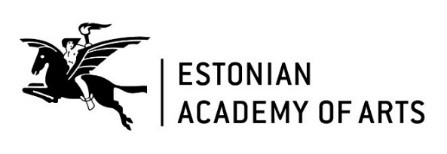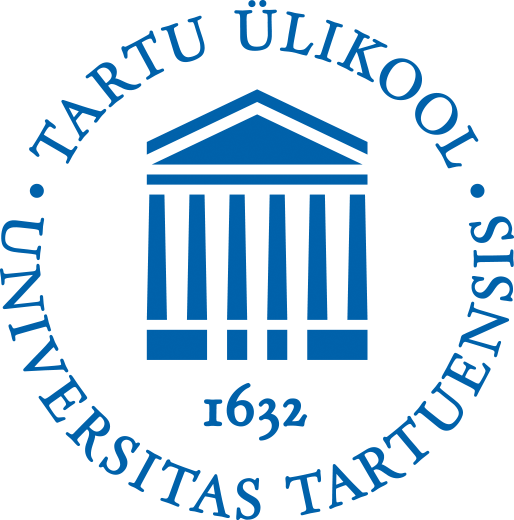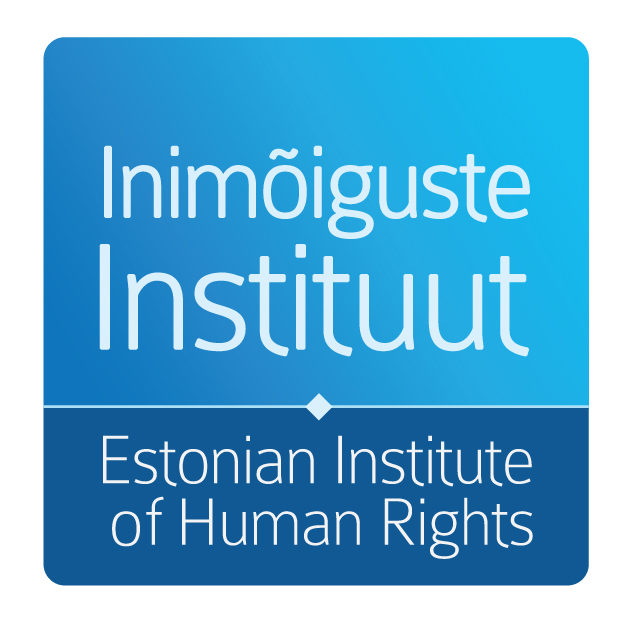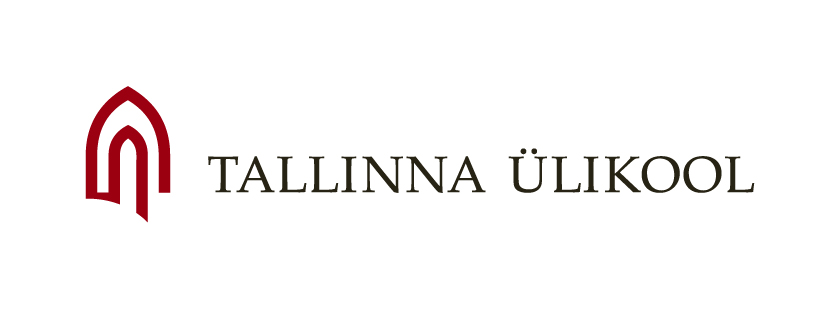Koolitus "Pärand ja kogukonna õigused"
Автор:
Ave PaulusKutsume kaitsealade pärandikogukondi, eksperte, ametnikke ja kraadiõppureid kursusele ja seminaridele "Pärand ja õigused", mis toimub 1.-6.mail Tallinna ja Lahemaa rahvuspargi erinevates kohtades. ICOMOS Eesti korraldab seda koostöös keskkonnaameti ja muinsuskaitseameti, Eesti Kunstiakadeemia ja Tartu Ülikooli, Eesti Inimõiguste Instituudi, Tallinna Ülikooli, rahvusvahelise ICOMOS ja Oslo ülikooli Norra inimõiguste keskusega. Kursus kestab 6 päeva ja on ka Eesti Kunstiakadeemia ja Tartu Ülikooli kraadiõppurite ainekava aine. Koolitusprogramm toimub inglise keeles. Vajalik on eelnev registreerimine, kohti on piiratud arv. Koolitus ja seminarid toovad kokku kogukondade esindajad, õigus- ja pärandieksperdid üle maailma. Keskendutakse riigi, kogukonna ja ekspertide vahelisele koostööle pärandi haldamisel. Arutatakse, kuidas rakendada kultuuripärandi kaitsel inimõigustel põhinevaid lähenemisviise, et tasakaalustada riigi, omanike ja kogukondade õigusi ja kohustusi. Loengud on järelvaadatavad selle lingi kaudu. 2.05 GMT 6.00 -14.00 ; 5.05 GMT 7.00-15.00 Programmi inglisekeelne annotatsioon, kava ja registreerimisvormel on allpool. Livestream 1 May, 5. May : https://www.youtube.com/channel/UCL0V3XR8iViHNtRYDK5G1yQ ICOMOS Estonia, Estonian Academy of Arts and University of Tartu, Institute of Human Rights, Tallinn University, ICOMOS Norway and The Norwegian Centre of Human Rights, University of Oslo, Environmental Board and Heritage Board of Estonia Heritage and Rights training course and open seminars: Cooperation between state, community and individual in the governance and management of heritage 1.-6. May 2019, Estonia Please register Your participation here. "Heritage and Rights" programme: Wednesday 1st of May Meetings with local communities of Tallinn 16 Welcome session. Presentation of programme Participants present themselves. LIVESTREAMED!!! Thursday 2nd of May„OUR COMMON DIGNITY“ open seminar “Community Rights and Heritage”. Theoretical questions of Community-Based Heritage protection and Rights-based approaches. In Estonian Academy of Arts main building. Moderator: Dr Riin Alatalu, ICOMOS, Estonian Academy of Arts 9.00 Welcome words Mart Kalm, Academician, Rector and Professor of Estonian Academy of Arts Lauri Mälksoo, Academician, Professor of International Law, University of Tartu 9.30 - 10.45 What are human rights? The International Human Rights System. Dr Stener Ekern, Oslo University, Norwegian Centre of Human Rights 11.00 - 12.00 Rights-based approaches in Heritage protection. Community as rightsholder. Dr Peter Bille Larsen. Geneva University, Switzerland 12.00 - 13.00 Cultural heritage - tensions between individual and collective rights. Dr Aleksei Kelli, Ave Paulus, Tartu University, Estonia 14.00-14.30 Landscape protection- Heritage protection? Dr Helen Sooväli Sepping, Tallinn University 14.30-15.15 Ethics, communication and culture - Justo Vos Programme. Dr Daniel Scarfo, Ministry of Justice and Human Rights, Argentina 15.15-16.00 Rights of indigenous peoples and communities. Oliver Loode, Uralic Centre for Indigenous People, Institute of Human Rights, Estonia 16.15-18.00 Round-table: Challenges and opportunities in linking Heritage and Rights Night walking tour in Tallinn Friday 3rd of May Workshop-training in Tallinn Academy of Arts. Stener Ekern, Peter Bille Larsen et al 9.00-10.30 What is culture? Group formation and group rights 11.00-12.30 Human Rights-based planning (HRBA) 13.30- 16.00 Human Rights-based planning (HRBA) 19.00 Arrival to Viinistu. Dinner Saturday 4th of May Workshop-training continues in Lahemaa National Park, Viinistu Art and Conference Centre. Stener Ekern, Peter Bille Larsen etc 10.00-13.00 Human Rights-based planning (HRBA) 14.00-18.00 Applying theory to the cases Evening programme Sunday 5th of May. Public seminar: “Heritage and rights – empowerment of local communities” Lahemaa National Park, Palmse manor complex. Community-based heritage protection. Heritage communities, rights and values. 10.00 Opening words Riho Kuppart, Director General of the Environmental Board of Estonia Siim Raie, Director General of the Heritage Board of Estonia 10.20 - 10.45 Partnership between Heritage Board and Communities. Siim Raie, Heritage Board of Estonia. 10.45-11.15 Communities safeguarding the Heritage of Lahemaa NP. Ave Paulus, Marti Hääl. Lahemaa National Park Cooperation Council. 11.15-11.30 Coffee break 11.30-12.00 Community Rights and World Heritage. Dr Bénédicte Selfslagh, ICOMOS Belgium 12.00-12.30 Communities initiatives in Ireland. Dr Grainney Shaffrey, ICOMOS Ireland 12.30-13.00 Rights-Based approach in Heritage Protection - Some Remarks on the Course in Estonia. Dr Stener Ekern, Dr Peter Bille Larsen. 13.00-14.00 lunch 13.30-16.30 Round-table: Guidelines for Community-based Heritage Management. Participants Dr Riin Alatalu, Dr Aleksei Kelli, Dr Deirdre McDermott, Dr Bénédicte Selfslagh, Dr Stener Ekern, Dr Peter Bille Larsen, Siim Raie, Ave Paulus, Marti Hääl etc Summing up and closure Monday 6th of May Meetings with Lahemaa heritage communities Description of training Course "Heritage and Rights" 2 – 5 May 2019 What are human rights and what do they mean for heritage management? How are decisions made about the heritage? What norms are applied in decision making? Which values, principles and approaches guide those decisions? Are all relevant rights owners and stakeholders involved? Do all parties feel the decisions to be inclusive, effective, efficient, participatory, consensus-oriented and legitimate. Do all parties acknowledge that they have rights as well as duties. As a course, the principal aim is to introduce the knowledge basis to understand the issues and a set of flexible tools to enable participants to address human rights with the focus on the rights of the owners and the communities in their respective fields of heritage management. The course can be seen as enabling the implementation of the UN Sustainable Development Goals to promote just, peaceful and inclusive societies (target 16) targeting to ensure responsive, inclusive, participatory and representative decision-making at all levels (16.7), public access to information and protect fundamental freedoms, in accordance with national legislation and international agreements (16.8), Promoting and enforce non-discriminatory laws and policies for sustainable development (16.B). During the course we analyse and explore the ways and approaches how to: Understand international human rights standards and what they mean for the heritage field How human rights have been addressed in international heritage policy and practice How heritage has been addressed in the human rights field Adapt a rights-based approach to the particular heritage area and field. Advantages and challenges Requirements Explore the range of tools and skills necessary such as to: Build solid relationships with communities and peoples in their work. To embrace the principle of free, prior and informed consent of communities of origin before adopting measures related to their specific cultural heritage Offer all possible assistance so that communities and rights holders are consulted and invited to participate actively in the whole process of identification, selection, classification, interpretation, preservation and safeguard, as well as the administration and development of cultural heritage. How human rights approach helps to prevent and avoid conflicts between the rights of different communities. Facilitate mutual exchange and learning around individual cases and issues The course lecturers will provide a general introduction to international human rights law, as well as international human rights law that specifically relates to culture, heritage and communities. The course programme reflects this goal by building on group work and interactive sessions. The pilot course has the following learning goals: General introduction to the international human rights system, including its institutions and mechanisms Specific introduction to relevant cultural rights and relevant heritage conventions and texts, as well as the UN and UNESCO institutional framework HRBA planning tools for heritage governance and management Current challenges in cooperation with heritage communities Mutual learning and exchange around specific rights issues and concerns Case studies from different countries and field trips. The course will focus on perhaps two of the most difficult aspects of human rights theory: how do we understand “culture”, and how can we deal with the fact that some rights are group-based or collective and others are individual? How to balance the conflicts between the rights of different communities. In addition to providing basic knowledge about human rights and the UN, UNESCO and IUCN systems and practices in the field of human rights, this course will discuss actual cases of heritage management and rights in protected heritage areas in different countries. All participants are requested to prepare a brief note discussing challenges and dilemmas in their own heritage work or exploring a case based on literature. It can be a description of a legal case or typical dilemma in heritage management, including a brief description of the context. This might be about how to balance a national law with local custom. It can be about specific issues and cases where you deal with social concerns and rights issues. This may relate to specific groups or a particular management aspect or process. What is the concern/ question/ problem? How has it been addressed historically and what is the current management approach? What are the specific challenges? The case will be used during the course as a test when doing a 'human rights analysis' and designing and applying a 'rights-based approach' to the dilemma. The outcome is the case analysed with Rights-Based approach toolkit. The case study method allows the participants to apply newly acquired theoretical knowledge directly to their work and will help ICOMOS and the course organisers accumulate knowledge about how HRBA will affect heritage work and improve this as a tool. Training programme lecturers and speakers /in progress/: 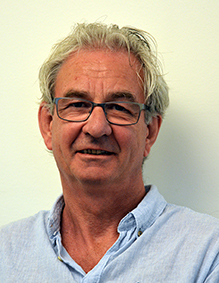 Stener Ekern Stener Ekern is professor in anthropology at the Norwegian Centre for Human Rights (NCHR) at the Faculty of Law at the University of Oslo. He has done fieldwork in Nicaragua (1984) and Guatemala (2000 and ongoing) with a thematic focus on indigenous peoples, human rights and legal pluralism. Additionally, he has worked with human rights and world heritage and transitional justice. At the NCHR he is responsible for several master courses in human rights and has also elaborated a course in human rights and world heritage in cooperation with ICOMOS Norway. Before becoming a university researcher in 1997, he worked as a programme officer in Norwegian development cooperation.
Stener Ekern Stener Ekern is professor in anthropology at the Norwegian Centre for Human Rights (NCHR) at the Faculty of Law at the University of Oslo. He has done fieldwork in Nicaragua (1984) and Guatemala (2000 and ongoing) with a thematic focus on indigenous peoples, human rights and legal pluralism. Additionally, he has worked with human rights and world heritage and transitional justice. At the NCHR he is responsible for several master courses in human rights and has also elaborated a course in human rights and world heritage in cooperation with ICOMOS Norway. Before becoming a university researcher in 1997, he worked as a programme officer in Norwegian development cooperation. 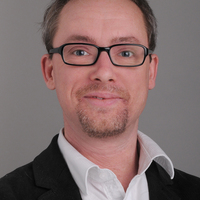 Peter Bille Larsen Peter Bille Larsen is a Danish anthropologist who works on conservation and social justice at both local and global levels. He is currently associate researcher at The Environmental Governance and Territorial Development Institute (GEDT) of the University of Geneva, and also works as a free-lance consultant. He has collaborated with UNESCO, the Advisory Bodies to the World Heritage Convention as well as academic partners to strengthen analysis and policy discussions on human rights, development and heritage. Recent books include Post-frontier resource governance (Palgrave, 2015), The Anthropology of Conservation NGOs (Palgrave 2018), World Heritage and Human Rights (Routledge, 2018) and World Heritage and Sustainable Development (Routledge, 2018).
Peter Bille Larsen Peter Bille Larsen is a Danish anthropologist who works on conservation and social justice at both local and global levels. He is currently associate researcher at The Environmental Governance and Territorial Development Institute (GEDT) of the University of Geneva, and also works as a free-lance consultant. He has collaborated with UNESCO, the Advisory Bodies to the World Heritage Convention as well as academic partners to strengthen analysis and policy discussions on human rights, development and heritage. Recent books include Post-frontier resource governance (Palgrave, 2015), The Anthropology of Conservation NGOs (Palgrave 2018), World Heritage and Human Rights (Routledge, 2018) and World Heritage and Sustainable Development (Routledge, 2018). 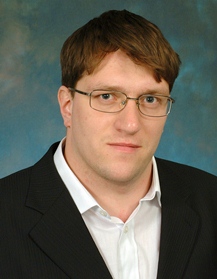 Aleksei Kelli Aleksei Kelli is Professor of Intellectual Property Law (University of Tartu, Estonia). He is Chair of Legal Committee of CLARIN ERIC (Common Language Resources and Technology Infrastructure). Dr Kelli acted as the Head of an Expert Group on the Codification of the Intellectual Property Law of Estonia. He has been a Member of Team of Specialists on Intellectual Property in the United Nations Economic Commission for Europe. He has taken part in several EU and Estonian R&D projects as a leading IP, innovation, and data protection expert. Dr. Kelli has published numerous works on intellectual property, innovation, personal data protection, knowledge transfer, and related issues.
Aleksei Kelli Aleksei Kelli is Professor of Intellectual Property Law (University of Tartu, Estonia). He is Chair of Legal Committee of CLARIN ERIC (Common Language Resources and Technology Infrastructure). Dr Kelli acted as the Head of an Expert Group on the Codification of the Intellectual Property Law of Estonia. He has been a Member of Team of Specialists on Intellectual Property in the United Nations Economic Commission for Europe. He has taken part in several EU and Estonian R&D projects as a leading IP, innovation, and data protection expert. Dr. Kelli has published numerous works on intellectual property, innovation, personal data protection, knowledge transfer, and related issues. 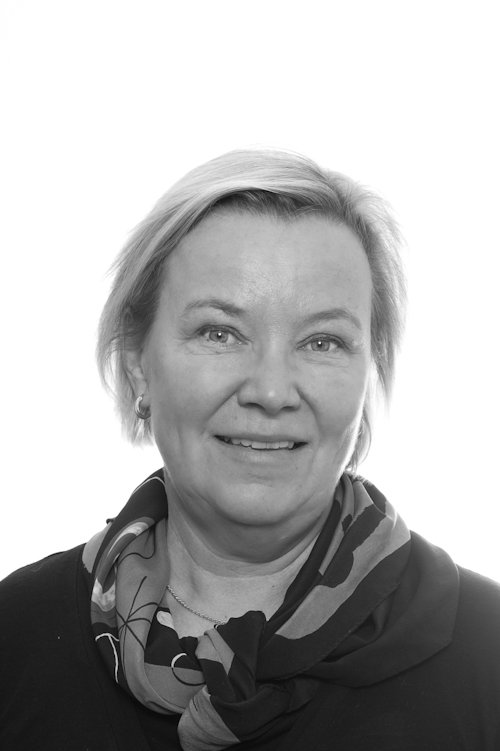 Bente Mathisen Bente Mathisen is a Norwegian chartered architect MNAL who works as an advisor and manager for cultural heritage at Statsbygg. She has been director for the Heritage Management Office of the World Heritage (WH) City of Bergen Norway, Director for Cidade Velha Republic of Cape Verde, and partner at the Architect group CUBUS, Bergen Norway. She is a board member of Foundation Bryggen, World Heritage site. She coordinated for 10 years the Eastern African City-to-City network between the WH cities of Bergen Lamu, Zanzibar and Ilha. She was the project leader of a restoration and capacity building project for the WH cities of Bergen, Norway, and Ilha, Mozambique. She has been a Board member of ICOMOS Norway, is member of ICORP and currently the focal point of the Our Common Dignity Initiative.
Bente Mathisen Bente Mathisen is a Norwegian chartered architect MNAL who works as an advisor and manager for cultural heritage at Statsbygg. She has been director for the Heritage Management Office of the World Heritage (WH) City of Bergen Norway, Director for Cidade Velha Republic of Cape Verde, and partner at the Architect group CUBUS, Bergen Norway. She is a board member of Foundation Bryggen, World Heritage site. She coordinated for 10 years the Eastern African City-to-City network between the WH cities of Bergen Lamu, Zanzibar and Ilha. She was the project leader of a restoration and capacity building project for the WH cities of Bergen, Norway, and Ilha, Mozambique. She has been a Board member of ICOMOS Norway, is member of ICORP and currently the focal point of the Our Common Dignity Initiative. 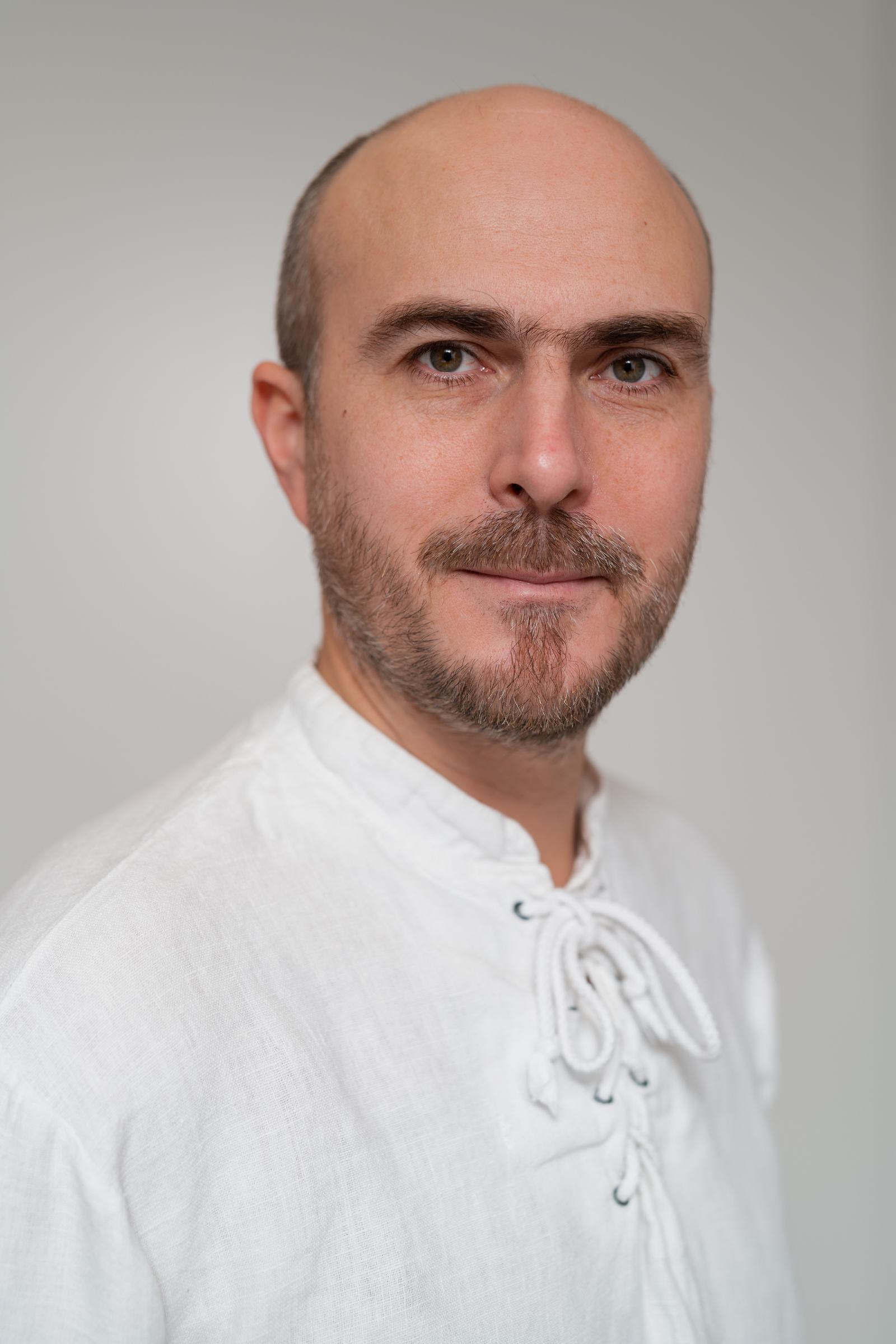 Oliver Loode Oliver Loode is Managing Director of URALIC Centre for Indigenous Peoples NGO (Põlisrahvaste Arengu Keskus MTÜ) where he coordinates the programme of Finno-Ugric Capitals of Culture and SANA2019: Civil Society Network for Preservation and Revitalization of Indigenous Languages. Between 2014-2016 he served as Expert Member of the United Nations Permanent Forum on Indigenous Issues (UNPFII), including as Vice-Chair and Rapporteur. He has also worked as Head of Cultural Programmes at Minority Rights Group International. Before entering the field of indigenous peoples’ and minority rights, Oliver was a tourism development and place marketing consultant.
Oliver Loode Oliver Loode is Managing Director of URALIC Centre for Indigenous Peoples NGO (Põlisrahvaste Arengu Keskus MTÜ) where he coordinates the programme of Finno-Ugric Capitals of Culture and SANA2019: Civil Society Network for Preservation and Revitalization of Indigenous Languages. Between 2014-2016 he served as Expert Member of the United Nations Permanent Forum on Indigenous Issues (UNPFII), including as Vice-Chair and Rapporteur. He has also worked as Head of Cultural Programmes at Minority Rights Group International. Before entering the field of indigenous peoples’ and minority rights, Oliver was a tourism development and place marketing consultant. 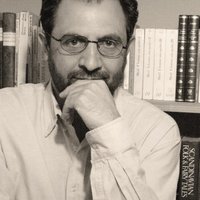 Daniel Scarfo Daniel Scarfo is a Cultural and Educational Advisor at the Ministry of Justice and Human Rights in Argentina (Justo Vos Programme). He is a sociologist (University of Buenos Aires) and a Ph.D. in Spanish and Portuguese (Yale University). He taught at different universities in Argentina (University of Buenos Aires, UTDT, FLACSO, UB, UNC), Canada (University of British Columbia) and U.S.A. (Yale University) and conducted research at the University of Buenos Aires, FLACSO and CONICET (Argentina). He was also the Director of the Sarmiento Museum and the Director of Institutional Programmes at the MAT (Tigre Art Museum), in Argentina. Research topics: languages, societies and cultures; ethics, education and justice.
Daniel Scarfo Daniel Scarfo is a Cultural and Educational Advisor at the Ministry of Justice and Human Rights in Argentina (Justo Vos Programme). He is a sociologist (University of Buenos Aires) and a Ph.D. in Spanish and Portuguese (Yale University). He taught at different universities in Argentina (University of Buenos Aires, UTDT, FLACSO, UB, UNC), Canada (University of British Columbia) and U.S.A. (Yale University) and conducted research at the University of Buenos Aires, FLACSO and CONICET (Argentina). He was also the Director of the Sarmiento Museum and the Director of Institutional Programmes at the MAT (Tigre Art Museum), in Argentina. Research topics: languages, societies and cultures; ethics, education and justice. 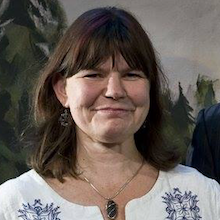 Riin Alatalu Riin Alatalu is an associate professor of heritage conservation and restoration in Estonian Academy of Arts and the head teacher of restoration in Hiiumaa Vocational School. She has a PhD in heritage conservation and restoration. Alatalu has worked in National Heritage Board, Tallinn Culture and Heritage Department and Estonian Ministry of Culture on leading positions taking care of supervision and promotion of heritage and she has been in charge of important international programs. She is the member of the Board of ICOMOS International and president of ICOMOS Estonia, member of Rights Based Approach working group, CIVVIH and Estonian Heritage Advisory Panel, former vice-president of ICLAFI.
Riin Alatalu Riin Alatalu is an associate professor of heritage conservation and restoration in Estonian Academy of Arts and the head teacher of restoration in Hiiumaa Vocational School. She has a PhD in heritage conservation and restoration. Alatalu has worked in National Heritage Board, Tallinn Culture and Heritage Department and Estonian Ministry of Culture on leading positions taking care of supervision and promotion of heritage and she has been in charge of important international programs. She is the member of the Board of ICOMOS International and president of ICOMOS Estonia, member of Rights Based Approach working group, CIVVIH and Estonian Heritage Advisory Panel, former vice-president of ICLAFI. .jpg) Ave Paulus Ave Paulus is the specialist for cultural heritage issues in the Environmental Board of Estonia, Council member of Virumaa Museums, Spokesperson of the intangible heritage of the Folk Culture Centre, Board member of Lahemaa and Alutaguse National Park Cooperation Councils. She is a member of ICOMOS International Scientific Committee on Cultural Landscapes, Rights-Based Approach working group, Climate Change working group. She has master`s degrees from Estonian Academy of Arts (heritage conservation and restoration) and Tartu University (semiotics and theory of culture). Her doctoral studies are related to the topic of community-based heritage protection. She has coordinated cooperation between heritage communities, state and universities in more than 30 development projects concerning heritage management.
Ave Paulus Ave Paulus is the specialist for cultural heritage issues in the Environmental Board of Estonia, Council member of Virumaa Museums, Spokesperson of the intangible heritage of the Folk Culture Centre, Board member of Lahemaa and Alutaguse National Park Cooperation Councils. She is a member of ICOMOS International Scientific Committee on Cultural Landscapes, Rights-Based Approach working group, Climate Change working group. She has master`s degrees from Estonian Academy of Arts (heritage conservation and restoration) and Tartu University (semiotics and theory of culture). Her doctoral studies are related to the topic of community-based heritage protection. She has coordinated cooperation between heritage communities, state and universities in more than 30 development projects concerning heritage management. Gráinne Shaffrey Gráinne Shaffrey is a Principal of Shaffrey Architects and current President of ICOMOS Ireland. Her work is concerned with the integration of new and existing urban fabric and public spaces which facilitate social and physical diversity. Research and publication has formed an important element of practice. Recent projects include the 14 Henrietta Street Museum which tells a bigger storey of home, housing, class and the city from the 18th to the late 20th Century through the prism of physical traces within this important historic building and the rich oral histories gathered through a unique collaboration with former residents. With ICOMOS Ireland, Gráinne has been working on a project gathering case studies which embrace the spirit and principles enshrined in the ‘Faro’ Convention on the Value of Heritage to Society. Please send your participation wishes to e-mail: ave.paulus@keskkonnaamet.ee Registration link: https://docs.google.com/forms/d/1eJ4Koae5jJxQOAJuQCqnh5mTcoVatTWzEFF6JdKhz1Q/edit?ts=5c770303 Environmental awareness: the organisers hold no-plastic and minimum trash policy (no advertising papers, bags, handouts; no plastic bottles or one-time dishes etc), there is a possibility to have only vegan meals, environmentally-friendly transport solutions are preferred. Organisers of the Workshops and Conference: Bente Mathisen, ICOMOS International Working Group “Our Common Dignity”, ICOMOS Norway Stener Ekern The Norwegian Centre of Human Rights, University of Oslo Ave Paulus, ICOMOS International Working Group “Our Common Dignity”, Environmental Board of Estonia Riin Alatalu, Estonian Academy of Arts, ICOMOS International, ICOMOS Estonia Siim Raie, Heritage Board of Estonia



